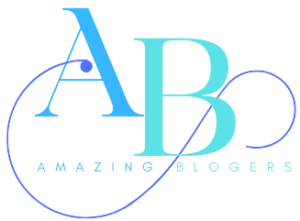Domain Authority (DA) is a metric developed by Moz that predicts how well a website will rank on search engine results pages (SERPs). It ranges from 1 to 100, with higher scores indicating a greater ability to rank. Improving your Domain Authority can significantly boost your SEO rankings, increase organic traffic, and enhance your website’s credibility. This article explores effective strategies for improving Domain Authority and SEO rankings.
Understanding Domain Authority
What is Domain Authority?
Domain Authority is a search engine ranking score that estimates the likelihood of a website ranking on SERPs. It is calculated based on various factors, including the number and quality of backlinks, the strength of your root domain, and the quality of your content.
How is Domain Authority Calculated?
Moz calculates Domain Authority using a machine learning algorithm that predicts how often Google uses a specific site in its search results. Key factors influencing DA include:
- Linking Root Domains: The number of unique domains linking to your site.
- Total Number of Links: The total number of inbound links to your site.
- MozRank and MozTrust: Scores that measure the link profile’s quality and trustworthiness.
- Quality Content: The relevance and value of your content.
- SEO Performance: Overall SEO performance, including on-page and technical SEO factors.
Strategies for Improving Domain Authority
Build High-Quality Backlinks
High-quality backlinks from authoritative and relevant websites are crucial for improving Domain Authority. Focus on acquiring backlinks that provide value and relevance to your content.
Tips for Building High-Quality Backlinks
- Guest Blogging: Write high-quality guest posts for reputable websites in your industry.
- Create Link-Worthy Content: Develop valuable content, such as research studies, infographics, and comprehensive guides, that others will want to link to.
- Engage in Outreach: Reach out to industry influencers, bloggers, and webmasters to promote your content and request backlinks.
- Participate in Industry Forums: Engage in discussions on industry forums and Q&A sites, and include links to relevant content on your website.
- Utilize Broken Link Building: Find broken links on relevant websites and offer your content as a replacement.
Optimize On-Page SEO
On-page SEO involves optimizing individual web pages to rank higher and earn more relevant traffic. Effective on-page SEO can improve your Domain Authority by enhancing user experience and search engine understanding of your content.
Key On-Page SEO Techniques
- Keyword Research: Conduct thorough keyword research to identify relevant and high-traffic keywords for your content.
- Title Tags and Meta Descriptions: Write compelling title tags and meta descriptions that include target keywords and entice users to click.
- Header Tags: Use H1, H2, and H3 tags to structure your content and include relevant keywords.
- Internal Linking: Link to other relevant pages on your site to improve navigation and distribute link equity.
- Alt Text for Images: Add descriptive alt text to images to improve accessibility and SEO.
Produce High-Quality, Relevant Content
High-quality content is the cornerstone of effective SEO and a critical factor for improving Domain Authority. Focus on creating content that is valuable, informative, and relevant to your audience.
Tips for Producing High-Quality Content
- Understand Your Audience: Conduct audience research to understand their needs, interests, and pain points.
- Provide Value: Offer actionable insights, solutions to problems, and comprehensive information.
- Maintain Originality: Ensure your content is original and provides a unique perspective or new information.
- Use Visuals: Incorporate images, videos, infographics, and other visual elements to make your content more engaging.
- Update Regularly: Keep your content updated to ensure it remains relevant and accurate.
Improve Technical SEO
Technical SEO involves optimizing the technical aspects of your website to improve its performance, accessibility, and search engine understanding.
Key Technical SEO Strategies
- Optimize Site Speed: Use tools like Google PageSpeed Insights to analyze and improve your site’s load times.
- Ensure Mobile-Friendliness: Implement responsive design to ensure your site performs well on all devices.
- Fix Crawl Errors: Use Google Search Console to identify and fix crawl errors that may hinder search engine indexing.
- Implement SSL: Secure your website with HTTPS to protect user data and improve trust.
- Use Schema Markup: Implement schema markup to help search engines understand your content better and enhance search results.
Enhance User Experience (UX)
A positive user experience can improve your SEO performance and Domain Authority. Focus on creating a website that is easy to navigate, visually appealing, and responsive.
Tips for Enhancing User Experience
- Simplify Navigation: Ensure your site has a clear and intuitive navigation structure.
- Improve Readability: Use clear fonts, appropriate font sizes, and sufficient white space to enhance readability.
- Engage with Multimedia: Incorporate videos, images, and interactive elements to engage users.
- Optimize for Mobile: Ensure your site is mobile-friendly and performs well on all devices.
- Reduce Bounce Rate: Provide relevant and valuable content to keep users engaged and reduce bounce rates.
Utilize Social Media
Social media can help you promote your content, attract backlinks, and increase your online visibility. A strong social media presence can indirectly improve your Domain Authority.
Tips for Utilizing Social Media
- Share Content Regularly: Post your content on social media platforms to reach a wider audience.
- Engage with Followers: Respond to comments and messages to build relationships with your audience.
- Collaborate with Influencers: Partner with industry influencers to promote your content and gain backlinks.
- Use Hashtags: Incorporate relevant hashtags to increase the visibility of your posts.
- Run Social Media Campaigns: Create campaigns to promote your content and encourage user-generated content.
Monitor and Analyze Performance
Regularly monitoring and analyzing your website’s performance is essential to understand what works and identify areas for improvement.
Tools for Monitoring Performance
- Google Analytics: Track website traffic, user behavior, and conversion metrics.
- Google Search Console: Monitor search performance, keyword rankings, and indexing issues.
- SEO Tools: Use tools like Ahrefs, SEMrush, and Moz to analyze backlinks, track keyword rankings, and conduct site audits.
Key Metrics to Monitor
- Organic Traffic: The number of visitors coming from search engines.
- Bounce Rate: The percentage of visitors who leave your site after viewing only one page.
- Conversion Rate: The percentage of visitors who complete a desired action, such as filling out a form or making a purchase.
- Engagement Metrics: Track metrics like time on page, social shares, and comments to gauge content engagement.
- Backlink Profile: Monitor the number and quality of backlinks to your site.
Build a Strong Internal Linking Structure
Internal linking helps distribute link equity across your site, improve navigation, and enhance user experience. A strong internal linking structure can also help search engines understand the hierarchy and relationship between your pages.
Tips for Building Internal Links
- Use Descriptive Anchor Text: Use relevant keywords as anchor text for your internal links.
- Link to Relevant Content: Ensure the linked content is relevant and adds value to the user.
- Update Old Content: Regularly update old content with new internal links to keep it fresh and relevant.
- Create a Silo Structure: Organize your content into thematic clusters with a central hub page linking to related subpages.
Improving Domain Authority and SEO rankings requires a comprehensive approach that includes building high-quality backlinks, optimizing on-page and technical SEO, producing valuable content, and enhancing user experience. By focusing on these strategies, you can improve your website’s credibility, increase organic traffic, and achieve better search engine rankings. Regularly monitor your performance, adapt your strategies based on insights, and stay informed about the latest SEO trends and best practices to maintain and enhance your Domain Authority. With consistent effort and a focus on quality, you can build a strong online presence and achieve your SEO goals.


